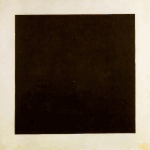|
DasReich posted:I would say it would be debatable. The relative size of the front combined with the German strategy of simply tying up as many Allied troops as possible seems to me the best way to tip the scales in the cross channel invasion pretty much anyone could see coming. Where is the endgame in this campaign anyway? Where does the offensive stop? Once you hit the Alps you're in pretty poor country until you hit central Germany. The Germans had nightmarish logistical problems moving into Austria during the Anschluss, and that was unopposed. Combat conditions would probably magnify that significantly. Well, the invasion of Sicily provided much needed practice for the Allies. Also, knocking Italy out of the war was probably a net positive. And don't forget that the endgame was that the Allies did an end run around the Alps, invading Southern France in August of 44. (Churchill, having failed to learn the lessons of the Salonika campaign, wanted to invade the Balkans and Greece, but thankfully we didn't listen to him.)
|
|
|
|

|
| # ? Jun 10, 2024 09:06 |
quote:One in every seventeen Italian soldiers faced a disciplinary charge in the war, and 61 per cent were found guilty. About 750 were executed, the highest number of any army in the war, and Cadorna reintroduced the Roman practice of decimation - the killing of every tenth man - for units which failed to perform in battle. What the fuuuuuuuuuuuuuck!?
|
|
|
|
sullat posted:Well, the invasion of Sicily provided much needed practice for the Allies. Also, knocking Italy out of the war was probably a net positive. And don't forget that the endgame was that the Allies did an end run around the Alps, invading Southern France in August of 44. (Churchill, having failed to learn the lessons of the Salonika campaign, wanted to invade the Balkans and Greece, but thankfully we didn't listen to him.) Not quite there were quite a few British troops on the ground in Athens in 1944 who fought on the government side in the opening rounds of the Greek Civil War. Also there was the farcical Dodecanese campaign that was meant to clear out Italian and German positions on the Greek occupied islands but failed miserably due to allied incompetence wikipedia has most of the details here. However that said most of the focus was on Italy.
|
|
|
|
|
sullat posted:Well, the invasion of Sicily provided much needed practice for the Allies. Also, knocking Italy out of the war was probably a net positive. And don't forget that the endgame was that the Allies did an end run around the Alps, invading Southern France in August of 44. (Churchill, having failed to learn the lessons of the Salonika campaign, wanted to invade the Balkans and Greece, but thankfully we didn't listen to him.) If we're talking about Operation Dragoon, I thought the whole point of it was to bypass the alps into the south of France, seeing as how it was an amphibious operation. The Germans fought a delaying action which ultimately wound up setting the stage for the Hurtgen Forest. And for me the "practice" thing never really seemed to hold much, given the problems that still took place in Overlord.
|
|
|
|
DasReich posted:And for me the "practice" thing never really seemed to hold much, given the problems that still took place in Overlord. It cannot be understated how absolutely difficult and involved the process of an amphibious landing on that kind of scale is. All things considered Overlord went amazingly well.
|
|
|
|
Anzio was also an important learning experience directly cited as establishing the importance of taking all risks to drive as far inland as possible on the first day.
|
|
|
|
Alchenar posted:Anzio was also an important learning experience directly cited as establishing the importance of taking all risks to drive as far inland as possible on the first day. That book also really soured me on Montgomery.
|
|
|
|
Magni posted:Ah, Luigi Cadorna. Contender for the worst general in any modern army ever. Reading the Wiki article on that guy is going to measurably lower your faith in humanity. And here I thought Legend of the Galactic Heroes had some unrealistically dumb commanders running around, until I read this guys wiki article 
|
|
|
|
SeanBeansShako posted:What the fuuuuuuuuuuuuuck!?  Sounds like something Ferdinand Schörner might have done.
|
|
|
|
I was wrong, he assaulted the same river 12 times, which caused half of the 600,000 total Italian casualties in WWI.
|
|
|
|
gradenko_2000 posted:The irony is that there's an anecdote from Beevor's D-Day account about British soldiers that just sat down and starting brewing tea right on the beach after the immediate area had been cleared instead of driving down further towards Caen with all expediency. The Challenger 2 , Britains MTB has the capability to make a cup of tea. This was insisted upon as part of the design. When it happens that any other small northern european nation has such a long military record of success and they do it without frequent cups of tea is the time we discount the fighting value of the humble beverage. American tanks probably have cup holders for XXL pepsi drinks and extra wide seats. General China fucked around with this message at 23:51 on Nov 9, 2012 |
|
|
|
Slim Jim Pickens posted:there was no way for Germany and Italy to fight the Royal Navy. . Why after the success of the Japanese against the British around Malaysia did the Germans not take note and deny the sea to British surface ships within distance of land based air?
|
|
|
Ron Jeremy posted:Why after the success of the Japanese against the British around Malaysia did the Germans not take note and deny the sea to British surface ships within distance of land based air? I'm going to vaguely guess and say preparing for war with/fighting the Soviets was a lot more closer to home for them resources and effort wise than trying to cut off the Royal Navy from obsolete soon to be occupied colonies for them.
|
|
|
|
|
Ron Jeremy posted:Why after the success of the Japanese against the British around Malaysia did the Germans not take note and deny the sea to British surface ships within distance of land based air? The Germans tried to during the battle of britain. They lost. In the med, the brits had malta.
|
|
|
|
General China posted:The Germans tried to during the battle of britain. They lost. I think swapping from military to civilian targets had something to do with that.
|
|
|
|
This has been bugging me for a while since I'm IPA-illiterate: How is Bagration pronounced? Is it just bag ration, or ba-great-shun, bagrat-eeon or something else?
|
|
|
|
General China posted:The Challenger 2 , Britains MTB has the capability to make a cup of tea. This was insisted upon as part of the design. Wait I thought all tankers were dwarves.
|
|
|
|
General China posted:The Germans tried to during the battle of britain. They lost. Did they though? I don't think they tried / were able to reach Skapa Floe, but denial of the sea lanes around the channel?
|
|
|
|
Blckdrgn posted:I think swapping from military to civilian targets had something to do with that. The luftwaffe couldn't make their minds up between radar stations, airbases, political or industrial targets. Their first attack on radar stations knocked a huge hole in the radar defence by destroying the buildings under the radar towers. The towers were not touched being made out of steel girders- hard to damage with he bombs. The damage to the building infrastructure and staff was soon replaced. The germans just assumed that the personel and buildings were buried deep undeground when the radar was back on air so quickly and then left them alone.
|
|
|
|
I.W.W. ATTITUDE posted:This has been bugging me for a while since I'm IPA-illiterate: How is Bagration pronounced? Is it just bag ration, or ba-great-shun, bagrat-eeon or something else? I've been reading War and Peace and I run into this name a lot. I didn't think of I was reading it wrong but apparently the wiki page on him suggests Bug-rut-ee-on http://en.wikipedia.org/wiki/Pyotr_Bagration#Pronunciation
|
|
|
|
Ron Jeremy posted:Why after the success of the Japanese against the British around Malaysia did the Germans not take note and deny the sea to British surface ships within distance of land based air? Even if we grant that they could spare the planes for a land-based anti-Royal Navy offensive (they couldn't), they still wouldn't be able to spare the land forces for an invasion, nor would they have any kind of navy that could pull off an invasion even if they sank all of the RN with time-traveling Harpoon missiles.
|
|
|
|
gradenko_2000 posted:I think the best answer here is that by the time the Japanese sank the Repulse and Prince of Wales, the Germans were already balls deep in Russia. Another significant problem is that effective bombing of ships requires training and doctrine specific to that mission, because warships at sea are obviously very different from other targets. Even something as simple as finding your way to a specific sector of the ocean and knowing how to look down and find ships in all that water, and correctly identify which one you should try to bomb, entails specialized training. It also requires different sorts of planes and different kinds of payloads. Torpedo bombers are one possibility, which were particularly effective against capital ships because they struck below the waterline. Dive bombers are also effective, but they require armor-piercing bombs to pierce the deck armor of capital ships. Level bombing with "dumb" munitions was almost totally ineffective against naval targets, as actually hitting a moving ship pretty much required a low-and-slow run straight over the target, which was suicide against warships bristling with AAA and dual-purpose guns. Torpedo bombers, with a similar but somewhat safer attack profile (since they could release their payload a distance from the target, rather than having to cut straight overhead), tended to suffer severely. Dive bombers did better, since they dove in and climbed out of gunnery range so quickly. Because the Japanese military, both land and navy AFAIK, anticipated that their aviators would need to engage naval targets, they trained and equipped them to do so. The Luftwaffe paid virtually no attention to torpedo bombing, and their dive bombers were earmarked for use against targets on land, so the pilots weren't especially well-trained for naval work. I don't know widely available their armor-piercing anti-ship bombs were, either. I think they did engage in some harassment of UK civilian shipping but nothing too serious. Eventually the Germans developed guided munitions, which allowed level bombers to accurately strike moving ships from a safe distance. These were pretty effective when they were used, but by the time those were available it was far too late for them to be of much use. Hopefully Bewbies will appear for a more detailed and accurate discussion, since he seems to be the guy who actually knows about WWII aviation.
|
|
|
|
You left out skip-bombing. Medium bombers can seriously gently caress up a capital ship. PBJ Mitchells and I believe some A26 models were specialized for ground and naval attack.
|
|
|
|
DasReich posted:You left out skip-bombing. Medium bombers can seriously gently caress up a capital ship. PBJ Mitchells and I believe some A26 models were specialized for ground and naval attack. Those guys still trained specifically for naval targets, though. I think the basic point is that you just couldn't grab some ordinary Luftwaffe pilots who had been bombing land targets their whole careers and say "now hit a boat instead" and have them be effective, and the Luftwaffe wasn't going to make the same commitment to naval attack training that, say, the Japanese would.
|
|
|
|
DasReich posted:You left out skip-bombing. Medium bombers can seriously gently caress up a capital ship. PBJ Mitchells and I believe some A26 models were specialized for ground and naval attack. I'm pretty certain skip-bombing was mostly used against transports and destroyers rather than capital ships, because it was too random to guarantee effectiveness against anything armored. If everything went right and the bombs detonated underwater immediately adjacent to the ship, they might severely damage anything without a torpedo belt, but they'd be just as likely to end up going wide, bursting in the air over the target, or landing sideways on the deck and detonating just as they lay against the armor. Contact detonations and near-miss airbursts would be very bad news for a destroyer, but something on the order of a cruiser or larger could soak up a lot of that kind of punishment without wearing it too much. Also, as ships got larger their AAA added up fast, so a low-level approach that worked against a convoy group of destroyers and transports would be far more dangerous against larger ships. gohuskies posted:Those guys still trained specifically for naval targets, though. I believe it was actually regarded as the most difficult method to get right, because the timing had to be precise. Also, the Germans never did it, probably because they lacked the expertise.
|
|
|
|
Jabronie posted:I've been reading War and Peace and I run into this name a lot. I didn't think of I was reading it wrong but apparently the wiki page on him suggests Bug-rut-ee-on I am confused. It says it right there in IPA : something roughly like Buh-grey-shun. Buh like the start of "butt", grey as in the color, shun as in what the Amish do when they don't like you. Stress on the second syllable. Unless you were going off the completely retarded Webster orthography, but then you were reading it wrong.
|
|
|
|
Jabronie posted:Bug-rut-ee-on This one is pretty much correct. Maybe I'd tweak it to bug-rut-yon, not to go overboard on the "ee" sound.
|
|
|
|
gohuskies posted:Those guys still trained specifically for naval targets, though. I think the basic point is that you just couldn't grab some ordinary Luftwaffe pilots who had been bombing land targets their whole careers and say "now hit a boat instead" and have them be effective, and the Luftwaffe wasn't going to make the same commitment to naval attack training that, say, the Japanese would. Oh no doubt there's specialized training involved and I'd venture to say its a credible threat up to a light cruiser. I agree that it boils down to training. My question is since the Ju-88 was set up for dive bombing, could crews have been trained for medium range interdiction?
|
|
|
|
General China posted:The luftwaffe couldn't make their minds up between radar stations, airbases, political or industrial targets. Their first attack on radar stations knocked a huge hole in the radar defence by destroying the buildings under the radar towers. The towers were not touched being made out of steel girders- hard to damage with he bombs. The allies had similar indecision on what to focus on at first, until they were able to say, "gently caress it, bomb everything" with tens of thousands of bombers at their disposal. Part of the issue was that strategic bombing was a new technology, supposed to be a silver bullet, and Goering was switching between targets, trying to find the exhaust port above Britain's reactor core, to mix a metaphor.
|
|
|
|
DasReich posted:Oh no doubt there's specialized training involved and I'd venture to say its a credible threat up to a light cruiser. I agree that it boils down to training. My question is since the Ju-88 was set up for dive bombing, could crews have been trained for medium range interdiction?
|
|
|
|
DasReich posted:Where is the endgame in this campaign anyway? Where does the offensive stop? Once you hit the Alps you're in pretty poor country until you hit central Germany. The Germans had nightmarish logistical problems moving into Austria during the Anschluss, and that was unopposed. Combat conditions would probably magnify that significantly. You're absolutely right - there is simply no way German forces could have turned back from the front line, dragged all their heavy equipment, supplies and ammunition up into the mountains and set up semi-permanent defensive positions and fortifications under combat conditions. They were outnumbered three to one, had completely lost control of the air, almost completely lost control of the sea and waterways, were being harassed by an extremely hostile population and were constantly being attacked by Allied forces. Again, you are absolutely right that German forces would not have been able to occupy the Alps and defend them against the Allies; so why do you claim that they could have? The Alps were a wall. There was going to be no fighting through them, no organised retreat - the Germans were forced against the wall and had nowhere left to go. During the 1945 Spring Offensive von Vietinghoff took one look at the Alps looming behind him and chose unconditional surredner. That was the endgame; that was where the offensive stopped. This is in history books for goodness sake!
|
|
|
|
duckmaster posted:You're absolutely right - there is simply no way German forces could have turned back from the front line, dragged all their heavy equipment, supplies and ammunition up into the mountains and set up semi-permanent defensive positions and fortifications under combat conditions. They were outnumbered three to one, had completely lost control of the air, almost completely lost control of the sea and waterways, were being harassed by an extremely hostile population and were constantly being attacked by Allied forces. Calm down, he just asked a simple question
|
|
|
|
For what it's worth, while the Italian campaign's military value was debatable, it managed to placate Stalin who was seriously pushing the western Allies to open up a second front ASAP.
|
|
|
|
Xiahou Dun posted:I am confused. It says it right there in IPA : something roughly like Buh-grey-shun. Buh like the start of "butt", grey as in the color, shun as in what the Amish do when they don't like you. Stress on the second syllable. I'm Russian, and it's pronounced Bah-gra-tee-on, emphasis on the tee.
|
|
|
|
duckmaster posted:You're absolutely right - there is simply no way German forces could have turned back from the front line, dragged all their heavy equipment, supplies and ammunition up into the mountains and set up semi-permanent defensive positions and fortifications under combat conditions. They were outnumbered three to one, had completely lost control of the air, almost completely lost control of the sea and waterways, were being harassed by an extremely hostile population and were constantly being attacked by Allied forces. They managed pretty well in the first war. See:Battle of the Isonzo and its wonderful 12 sequels! And if the Alps were indeed a wall as you contend, that goes both ways. Was the plan something like this?: 1)Defeat Germans and Italians until you reach the Alps 2)???? 3)Profit
|
|
|
|
The endgame in Italy was reaching Lombardia/Veneto. Who would go through the Alps? The bonkers schemes about Ljubljana or more Izonzos were fringe theories. While Overlord was taking place, the Allies in Italy were just reaching Rome. After that, the priority was given to Western Europe, because that's where the breakthrough was actually possible. But Overlord in 1943 would have been disaster, considering how Husky, Avalanche and Anzio were bunked. Italy was invaded to open a second front and to keep the Germans on their toes. It was not intended to open up South Germany for attack through the Alps. The overall worth of Italy is understated, and it was not a worthless campaign by any measure.
|
|
|
|
feedmegin posted:The American War of Independence: a nation founded on the principles of protecting slavery, exterminating Native Americans and preserving the income of colonial tea smugglers. Slavery he was squimish about too, but never had the balls to push the issue. Also he [like most southern plantation owners] was too debt ridden to pay for labor. Kicking the can down the road: an American tradition! Magni posted:Ah, Luigi Cadorna. Contender for the worst general in any modern army ever. Reading the Wiki article on that guy is going to measurably lower your faith in humanity. Slim Jim Pickens posted:But Overlord in 1943 would have been disaster, considering how Husky, Avalanche and Anzio were bunked.
|
|
|
|
KurdtLives posted:Would Anzio of been a success if the Allies didn't sit on the beach instead of securing the high ground? Yes, if they'd reached the high ground then you can see on maps how the western half of the Gustav line would have been completely untenable. As things transpired, there was the chance to bag most of the German army when they fell back from Cassino but Clark wanted to be the guy who liberated Rome so now history remembers him as an idiot who prolonged the war in his theatre for personal glory.
|
|
|
|
DasReich posted:They managed pretty well in the first war. See:Battle of the Isonzo and its wonderful 12 sequels! I... what? The Austrians were fighting from fixed defensive positions in an evacuated area and supplied by road and rail from their own country, whilst air superiority was irrelevant since neither side had any airplanes. The Germans would have been fighting from holes in the ground with no food and no ammunition and being bombed during the day. At night the local population would be coming out to chuck hand grenades at them. There are little similarities between a fanciful German defensive from the Alps and the Battle of Isonzo and its eleven sequels. DasReich posted:And if the Alps were indeed a wall as you contend, that goes both ways. Was the plan something like this?: Um, yes. You do realise the Italian Campaign has finished, right?
|
|
|
|

|
| # ? Jun 10, 2024 09:06 |
|
Ensign Expendable posted:I'm Russian, and it's pronounced Bah-gra-tee-on, emphasis on the tee. O, cool. Then someone should fix the IPA in the link, 'cause it sure as hell doesn't say that.
|
|
|




























